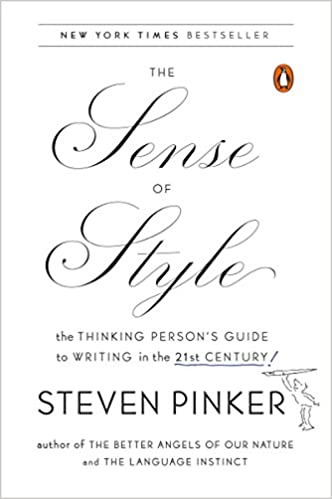Publications
2010
2009
"Witty, lucid, and ultimately enthralling."
—Robert McCrum, The Observer
In this extraordinary book, Steven Pinker, one of the world's leading cognitive scientists, does for the rest of the mind what he did for language in his 1994 bestseller The Language Instinct. He explains what the mind is, how it evolved, and how it allows us to see, think, feel, laugh, interact, enjoy the arts, and ponder the mysteries of life. And he does it with the wit, clarity, and verve that earned The Language Instinct, worldwide critical acclaim and awards from major scientific societies. Pinker explains the mind by "reverse-engineering" it—figuring out what natural selection designed it to accomplish in the environment in which we evolved. The mind, he writes, is a system of "organs of computation" that allowed our ancestors to understand and outsmart objects, animals, plants, and each other. How the Mind Works explains many of the imponderables of everyday life. Why does a face look more attractive with makeup? How do "Magic-Eye" 3-D stereograms work? Why do we feel that a run of heads makes the coin more likely to land tails? Why is the thought of eating worms disgusting? Why do men challenge each other to duels and murder their ex-wives? Why are children bratty? Why do fools fall in love? Why are we soothed by paintings and music? And why do puzzles like the self, free will, and consciousness leave us dizzy? This arguments in the book are as bold as its title. Pinker rehabilitates unfashionable ideas, such as that the mind is a computer and that human nature was shaped by natural selection. And he challenges fashionable ones, such as that passionate emotions are irrational, that parents socialize their children, that creativity springs from the unconscious, that nature is good and modern society corrupting, and that art and religion are expressions of our higher spiritual yearnings. How the Mind Works presents a big picture, but it is not a personal musing; it is a grand synthesis of the most satisfying explanations of our mental life that have been proposed in cognitive science and evolutionary biology, with insights from disciplines ranging from neuroscience to economics and social psychology. It is also fascinating, provocative, and thoroughly entertaining.
REVIEWS:
Review Excerpts
Full Reviews
AVAILABLE AT:
Amazon
Amazon UK
Barnes & Noble
IndieBound
Words, grammar, and phonology are linguistically distinct, yet their neural substrates are difficult to distinguish in macroscopic brain regions. We investigated whether they can be separated in time and space at the circuit level using intracranial electrophysiology (ICE), namely by recording local field potentials from populations of neurons using electrodes implanted in language-related brain regions while people read words verbatim or grammatically inflected them (present/past or singular/plural). Neighboring probes within Broca’s area revealed distinct neuronal activity for lexical ( 200 milliseconds), grammatical ( 320 milliseconds), and phonological ( 450 milliseconds) processing, identically for nouns and verbs, in a region activated in the same patients and task in functional magnetic resonance imaging. This suggests that a linguistic processing sequence predicted on computational grounds is implemented in the brain in fine-grained spatiotemporally patterned activity.
2008
When people speak, they often insinuate their intent indirectly rather than stating it as a bald proposition. Examples include sexual come-ons, veiled threats, polite requests, and concealed bribes. We propose a three-part theory of indirect speech, based on the idea that human communication involves a mixture of cooperation and conflict. First, indirect requests allow for plausible deniability, in which a cooperative listener can accept the request, but an uncooperative one cannot react adversarially to it. This intuition is sup- ported by a game-theoretic model that predicts the costs and benefits to a speaker of direct and indirect requests. Second, language has two functions: to convey information and to negotiate the type of relationship holding between speaker and hearer (in particu- lar, dominance, communality, or reciprocity). The emotional costs of a mismatch in the assumed relationship type can create a need for plausible deniability and, thereby, select for indirectness even when there are no tangible costs. Third, people perceive language as a digital medium, which allows a sentence to generate common knowledge, to propagate a message with high fidelity, and to serve as a reference point in coordination games. This feature makes an indirect request qualitatively different from a direct one even when the speaker and listener can infer each other’s intentions with high confidence.



